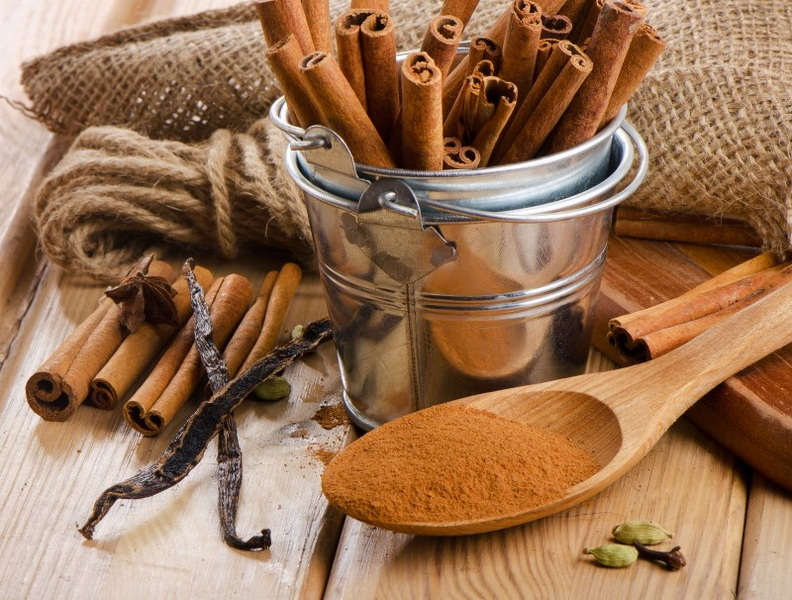Content Menu
● Introduction to Cinnamon Bark Extract
>> Extraction Methods
● Health Benefits of High Quality Cinnamon Bark Extract
>> Antioxidant Properties
>> Anti-Inflammatory Effects
>> Antibacterial and Antifungal Properties
>> Blood Sugar Management
>> Heart Health
>> Cancer Prevention
>> Neuroprotective Effects
>> Digestive Health
● How to Use High Quality Cinnamon Bark Extract
>> Dietary Supplements
>> Culinary Uses
>> Cosmetic Applications
● Precautions and Side Effects
● Types of Cinnamon
● Conclusion
● Frequently Asked Questions
>> 1. What are the benefits of using high quality cinnamon bark extract?
>> 2. How do I choose a high quality cinnamon bark extract?
>> 3. Can I use cinnamon bark extract for skin care?
>> 4. Are there any side effects of consuming cinnamon bark extract?
>> 5. How should I store cinnamon bark extract to maintain its quality?
● Citations:
Cinnamon, a spice derived from the bark of the cinnamon tree, has been used for centuries in traditional medicine and culinary practices. Among its various forms, high quality cinnamon bark extract is gaining attention for its potential health benefits. This article explores how to effectively utilize high quality cinnamon bark extract for enhancing overall well-being.

Introduction to Cinnamon Bark Extract
Cinnamon bark extract is obtained from the bark of the cinnamon tree, primarily through processes involving organic solvents or ethanol extraction. The extract contains several bioactive compounds, including cinnamaldehyde, which is responsible for its distinct flavor and aroma, as well as its medicinal properties.
Extraction Methods
The extraction of cinnamon bark involves several steps:
1. Volatile Oil Extraction: Using organic solvents to extract the volatile oils from the bark.
2. Ethanol Extraction: Extracting the defatted bark powder with ethanol to obtain an ethanol extract, which can be further processed to yield tannins, pigments, and gum.
Health Benefits of High Quality Cinnamon Bark Extract
High quality cinnamon bark extract is rich in antioxidants and has anti-inflammatory, antibacterial, and antifungal properties, making it beneficial for various health conditions.
Antioxidant Properties
Cinnamon contains polyphenols, which are powerful antioxidants that help protect against oxidative stress and inflammation. These compounds can act as natural preservatives in food and contribute to overall health.
Antioxidant Properties of Cinnamon
Anti-Inflammatory Effects
The anti-inflammatory properties of cinnamon, particularly due to cinnamaldehyde, can help reduce inflammation, which is linked to chronic diseases like heart disease and diabetes.
Antibacterial and Antifungal Properties
Cinnamon's essential oils, especially cinnamaldehyde, have been shown to inhibit the growth of bacteria and fungi, making it useful against infections.
Blood Sugar Management
Cinnamon may help manage blood sugar levels by improving insulin sensitivity and reducing glucose absorption in the gut. Studies have demonstrated that cinnamon can improve glucose tolerance and insulin resistance, which are crucial for managing diabetes[6].
Heart Health
High quality cinnamon bark extract may lower cholesterol levels and reduce the risk of heart disease by decreasing triglycerides and LDL cholesterol. Regular consumption of cinnamon has been associated with improved lipid profiles and reduced cardiovascular risk factors[3][7].
Cancer Prevention
Some studies suggest that cinnamon extract may inhibit angiogenesis and slow tumor growth, though more research is needed. The anti-inflammatory and antioxidant properties of cinnamon may also contribute to its potential role in cancer prevention[3][5].
Neuroprotective Effects
Cinnamon has antioxidant and anti-inflammatory effects in the brain, which may help prevent Alzheimer's disease by interfering with the development of amyloid beta plaques and tau tangles[5].
Digestive Health
Cinnamon can help relieve digestive symptoms caused by stress, inflammatory bowel disease (IBD), and colitis by reducing inflammation and serotonin levels in the gut[5].

How to Use High Quality Cinnamon Bark Extract
Dietary Supplements
- Dosage: Typically, 1/2 to 1 teaspoon (2-4 grams) of cinnamon powder per day is recommended. However, for extracts, follow the manufacturer's guidelines.
- Precautions: High doses can be toxic, so it's crucial to consult with a healthcare provider before starting any supplement regimen.
Culinary Uses
Incorporate cinnamon into your diet through cooking and baking. It pairs well with sweet dishes like desserts and can add flavor to savory meals.
Cosmetic Applications
Cinnamon bark extract is also used in cosmetics for its antioxidant and anti-inflammatory properties, which can help protect the skin.
Precautions and Side Effects
While high quality cinnamon bark extract offers numerous benefits, it is essential to be aware of potential side effects:
- Allergic Reactions: Some individuals may experience allergic reactions or skin irritation.
- Interactions with Medications: Cinnamon can interact with certain medications, such as blood thinners.
Types of Cinnamon
There are two main types of cinnamon: Ceylon (Sri Lankan) and Cassia. Ceylon cinnamon is considered safer and more beneficial due to its lower coumarin content, which can be toxic in high doses[5].
Conclusion
High quality cinnamon bark extract is a versatile and potentially beneficial supplement for enhancing health. From managing blood sugar levels to reducing inflammation, its applications are diverse. However, it is crucial to use it responsibly and consult with healthcare professionals before adding it to your regimen.

Frequently Asked Questions
1. What are the benefits of using high quality cinnamon bark extract?
High quality cinnamon bark extract offers several health benefits, including antioxidant, anti-inflammatory, antibacterial, and antifungal properties. It may help manage blood sugar levels, improve heart health, and even support cancer prevention efforts.
2. How do I choose a high quality cinnamon bark extract?
When selecting a high quality cinnamon bark extract, ensure it is sourced from reputable manufacturers and contains a significant amount of bioactive compounds like cinnamaldehyde. Look for products with clear labeling and minimal additives.
3. Can I use cinnamon bark extract for skin care?
Yes, cinnamon bark extract is used in cosmetics due to its antioxidant and anti-inflammatory properties, which can help protect and soothe the skin. However, always perform a patch test before using any new skincare product.
4. Are there any side effects of consuming cinnamon bark extract?
While generally safe, cinnamon bark extract can cause allergic reactions in some individuals. High doses may also interact with certain medications or cause gastrointestinal upset.
5. How should I store cinnamon bark extract to maintain its quality?
Store cinnamon bark extract in a cool, dry place, away from direct sunlight. Ensure the container is tightly sealed to preserve the potency of the extract.
Citations:
[1] https://www.bbcgoodfood.com/health/nutrition/health-benefits-cinnamon
[2] https://pmc.ncbi.nlm.nih.gov/articles/PMC9914695/
[3] https://www.webmd.com/diet/supplement-guide-cinnamon
[4] https://www.frontiersin.org/journals/chemistry/articles/10.3389/fchem.2023.1194389/full
[5] https://www.webmd.com/diet/health-benefits-ceylon-cinnamon
[6] https://www.nature.com/articles/s41598-022-13421-9
[7] https://www.healthline.com/nutrition/10-proven-benefits-of-cinnamon
[8] https://www.rxlist.com/supplements/cinnamon_bark.htm






























